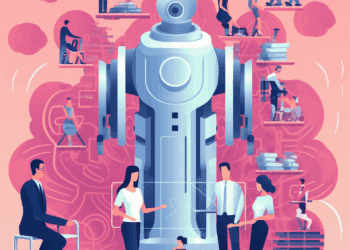The global landscape of work has undergone an irreversible transformation. What was once a niche benefit or a temporary necessity, remote work has solidified its position as a powerful, permanent fixture in our professional lives. Far from a passing trend, this flexible model is redefining productivity, fostering a more inclusive workforce, and reshaping the future of cities and businesses worldwide. The sudden pivot forced by global events has accelerated its adoption, revealing profound benefits and demonstrating its undeniable viability for a vast array of industries. This comprehensive article delves into the core principles of remote work, exploring its foundational drivers, the diverse technologies that enable its seamless operation, its transformative impact on various sectors, and the significant challenges and immense opportunities that accompany this pervasive shift in global work culture.
What is Remote Work?

At its essence, remote work refers to a work arrangement where employees perform their professional duties from a location outside a traditional office environment. This can include working from home, co-working spaces, cafes, or even different cities or countries. The defining characteristic is the geographical separation from a central corporate office, relying instead on digital tools and communication technologies to connect with colleagues, clients, and complete tasks.
Remote work is not a monolithic concept; it encompasses various models:
- Fully Remote: The entire workforce operates remotely, with no physical office presence.
- Hybrid Model: A blend of in-office and remote work, where employees might come into the office a few days a week or month, and work remotely for the rest.
- Remote-First: Companies prioritize remote work, designing processes and culture around it, with physical offices serving as optional hubs for collaboration or events.
- Remote-Friendly: Companies allow remote work as an option but still center their culture and operations around the physical office.
The shift to remote work is driven by a desire for greater flexibility for employees and strategic advantages for businesses, fundamentally altering how companies recruit, manage, and engage their workforce.
A. Foundational Drivers Cementing Remote Work’s Stay
Several interconnected factors have converged to solidify remote work as a lasting paradigm, moving beyond its initial emergency adoption.
- Technological Maturity and Accessibility:
- High-Speed Internet: Widespread access to reliable, high-speed internet is the bedrock, enabling seamless communication and data transfer.
- Collaboration Tools: Sophisticated software platforms like Zoom, Microsoft Teams, Slack, and Google Workspace provide robust video conferencing, instant messaging, file sharing, and project management functionalities, mimicking in-office collaboration.
- Cloud Computing: Cloud-based applications (SaaS) and infrastructure (IaaS, PaaS) allow employees to access all necessary software and data from anywhere, on any device, without needing to be physically present in a corporate data center.
- Cybersecurity Solutions: Advances in VPNs, endpoint security, multi-factor authentication, and secure access service edge (SASE) models provide the necessary security infrastructure for remote workforces.
- Hardware Evolution: Laptops, powerful home internet routers, and affordable peripherals make setting up an effective home office more feasible.
- Shifting Employee Preferences and Expectations:
- Desire for Flexibility and Work-Life Balance: Employees increasingly prioritize autonomy over their work schedule and location, seeking to better integrate professional and personal lives.
- Elimination of Commute: Saving time and money on daily commutes is a significant draw, improving overall quality of life and reducing environmental impact.
- Increased Productivity: Many individuals report higher productivity and focus in a remote setting due to fewer distractions and the ability to tailor their work environment.
- Enhanced Autonomy: The ability to manage one’s own time and tasks fosters a greater sense of ownership and responsibility.
- Better Wellbeing: For some, remote work reduces stress associated with office politics, fixed schedules, and long commutes, contributing to improved mental health.
- Strategic Business Advantages:
- Access to a Global Talent Pool: Companies are no longer limited by geographical boundaries for hiring, enabling them to recruit the best talent from anywhere in the world, often reducing talent acquisition costs.
- Reduced Overhead Costs: Significant savings on office space rent, utilities, maintenance, and associated amenities (e.g., cafeteria, parking) can be reallocated to other business priorities or passed to employees.
- Increased Employee Retention: Offering remote work options can significantly boost employee satisfaction and loyalty, reducing turnover rates.
- Enhanced Business Continuity: A distributed workforce is more resilient to local disasters (e.g., natural disasters, pandemics, transportation strikes), ensuring continuous operations.
- Improved Diversity and Inclusion: Remote work can open doors for individuals with mobility challenges, those in remote areas, or those with caregiving responsibilities, fostering a more diverse and inclusive workforce.
- Proof of Concept During the Pandemic:
- The forced global experiment of remote work during the pandemic demonstrated its viability on a massive scale, proving that many jobs could be performed effectively outside traditional offices. This shattered long-held misconceptions about remote productivity.
Remote Work’s Transformative Impact Across Industries
The widespread adoption of remote work is fundamentally reshaping operations, talent strategies, and workplace culture across a remarkably diverse range of sectors.
A. Information Technology (IT) and Software Development
The IT sector was an early adopter and continues to be a leader in remote work, leveraging its inherently digital nature.
- Distributed Development Teams: Software engineering, coding, and debugging can be performed effectively from anywhere, enabling companies to build diverse teams across time zones and geographies, accelerating project delivery.
- Access to Niche Talent: Companies can hire highly specialized developers, cybersecurity experts, data scientists, and cloud architects regardless of their location, filling critical skill gaps.
- DevOps and Cloud-Native Environments: The proliferation of cloud-based development tools and DevOps practices naturally supports remote collaboration and continuous integration/delivery pipelines.
- Reduced Infrastructure Costs: IT companies can significantly cut down on expensive office space and physical IT infrastructure by embracing fully remote or remote-first models.
- 24/7 Operations: Distributed global teams can provide continuous support or development cycles, enhancing customer service and product development speed.
B. Professional Services
Many professional service industries, traditionally office-centric, have successfully adapted to remote models.
- Virtual Consulting: Consultants can provide expert advice and deliver projects remotely, leveraging video conferencing, shared documents, and online project management tools, reducing travel expenses and time.
- Digital Marketing Agencies: Graphic designers, content writers, SEO specialists, social media managers, and web developers can effectively collaborate remotely on campaigns and client projects.
- Online Legal Services: Lawyers and paralegals can conduct client consultations, research, and document preparation remotely, offering more flexible and often more affordable legal services.
- Accounting and Finance: Accountants, bookkeepers, and financial analysts can manage clients’ books, prepare taxes, and provide financial advice remotely, particularly for small to medium-sized businesses (SMBs).
- Architectural and Design Firms: While some physical presence is needed, many design and drafting tasks can be performed remotely, with virtual collaboration tools allowing for shared views of models and plans.
C. Education and Academia
Remote work has deeply influenced the education sector, affecting both administrative staff and teaching roles.
- Online Teaching and Tutoring: Educators, professors, and tutors can deliver lessons, conduct classes, and provide one-on-one sessions remotely, broadening access to education.
- Remote Research Collaboration: Academics and researchers can collaborate on studies, analyze data, and write papers from different institutions or countries, fostering global scientific advancement.
- Administrative Staff: Many administrative roles within universities and schools, such as admissions, counseling, and IT support, can be effectively performed remotely, reducing campus overhead.
- Course Content Development: Teams can remotely collaborate on developing online course materials, videos, and interactive learning modules.
D. Customer Service and Support
Remote work has transformed call centers and customer support operations, leading to enhanced service delivery.
- Distributed Call Centers: Companies can establish geographically dispersed customer service teams, enabling 24/7 support across different time zones and accessing a wider talent pool.
- Reduced Infrastructure Costs: Eliminating the need for large physical call centers significantly reduces operational expenses.
- Improved Employee Morale: Customer service agents often report better work-life balance and reduced stress in a remote setting, leading to higher job satisfaction and lower turnover.
- Specialized Support: Companies can hire agents with specific language skills or product expertise regardless of location, ensuring better support for diverse customer needs.
E. Media and Publishing
The creative industries, particularly those focused on digital content, have readily adopted remote work.
- Journalism and Reporting: Reporters can cover stories and file reports from anywhere, leveraging mobile technology and digital publishing tools.
- Content Writing and Editing: Authors, editors, and copywriters can work remotely on books, articles, website content, and marketing materials.
- Video and Audio Production (Post-Production): Many aspects of video editing, audio mixing, graphic animation, and special effects can be performed remotely by specialized freelancers or distributed teams.
- Digital Marketing and Social Media Management: Teams manage campaigns, create content, and analyze performance from various locations.
Challenges and Considerations in the Sustained Remote Work Era

Despite its widespread adoption and numerous benefits, the long-term sustainability of remote work brings forth significant challenges that demand careful attention from workers, businesses, and policymakers.
A. Employee Well-being and Engagement
- Work-Life Balance Blur: The lines between work and personal life can become blurred, leading to increased working hours, difficulty disconnecting, and potential for burnout.
- Social Isolation: Lack of in-person interaction can lead to feelings of loneliness, reduced team cohesion, and a diminished sense of belonging, impacting mental health.
- Communication Challenges: Misunderstandings can arise more easily in asynchronous text-based communication, and the absence of informal interactions can hinder spontaneous problem-solving and relationship building.
- Distractions at Home: Balancing work responsibilities with family life, household chores, or other personal distractions can be challenging for some.
- Ergonomic Issues: Suboptimal home office setups can lead to physical discomfort or health issues if not properly addressed by employees and supported by employers.
B. Management and Leadership Adaptation
- Trust and Performance Measurement: Managers may struggle to adapt from traditional “time spent in office” metrics to measuring outcomes and trusting employees to manage their own schedules.
- Maintaining Company Culture: Fostering a cohesive company culture, building camaraderie, and onboarding new employees effectively can be more challenging in a distributed environment.
- Fairness and Equity: Ensuring equitable treatment, opportunities for promotion, and access to resources for both remote and in-office employees in hybrid models is crucial to avoid a “two-tier” workforce.
- Communication and Collaboration Tools: Selecting, implementing, and ensuring effective adoption of the right collaboration tools is vital but can be complex.
- Performance Management: Conducting performance reviews, providing constructive feedback, and addressing underperformance requires adapted strategies in a remote context.
C. Cybersecurity and Data Security Risks
- Expanded Attack Surface: A dispersed workforce accessing company data from various home networks and personal devices significantly expands the attack surface for cyber threats.
- Home Network Vulnerabilities: Consumer-grade routers and less secure home networks are often easier targets for cybercriminals than corporate networks.
- Shadow IT: Employees using unapproved personal devices or software for work can create security risks and data governance challenges.
- Data Loss and Compliance: Ensuring sensitive company data remains secure and compliant with regulations (e.g., GDPR, HIPAA) when accessed and stored outside controlled office environments is complex.
- Phishing and Social Engineering: Remote workers may be more susceptible to phishing and social engineering attacks if isolated from direct peer verification.
D. Infrastructure and Operational Considerations
- Hardware and IT Support: Companies need to provide adequate equipment and technical support for remote employees, which can be logistically challenging and costly.
- Connectivity Reliability: Ensuring all employees have reliable, high-speed internet access regardless of location can be an issue in certain regions.
- Physical Office Space Re-evaluation: Companies need to strategically rethink the purpose and size of their physical offices, potentially leading to downsizing or repurposing spaces for collaboration hubs.
- Legal and Tax Complexities: Managing payroll, taxes, and labor laws for employees working across different states, countries, or even continents introduces significant legal and compliance complexities.
- Emergency Preparedness: Developing robust business continuity plans for a dispersed workforce, accounting for local outages or individual emergencies, is essential.
Conclusion
Remote work has undeniably stayed strong, evolving from a temporary necessity into a transformative force that is fundamentally reshaping the global professional landscape. Driven by mature technologies, shifting employee expectations, and strategic business advantages, it offers unprecedented flexibility, wider talent access, and enhanced resilience. From revolutionizing IT and professional services to redefining customer support and media production, its pervasive influence is undeniable and continues to expand rapidly.
However, the sustained era of remote work must be navigated with careful consideration. Addressing the formidable challenges of employee well-being, adapting management styles, bolstering cybersecurity, and managing complex legal and operational infrastructures are essential for its long-term success and fairness. By fostering collaboration among employers, employees, technology providers, and policymakers, we can ensure that remote work evolves responsibly, building a more flexible, inclusive, and ultimately more productive future of work for all. Remote work isn’t just staying; it’s defining the very fabric of our professional future.












